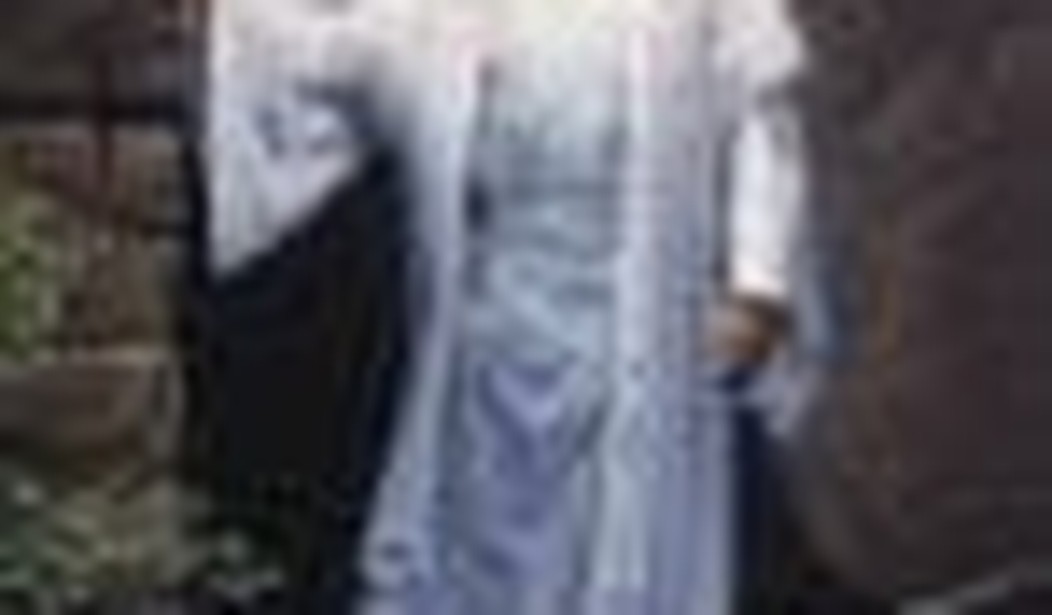Every year, Christians see an increase in stories meant to cast doubt upon the first and greatest story of “hope and change.” In media, spring is for bringing Christ out of Christianity, for pessimistic polling, and — this year — for both the president and the press to declare Christianity’s influence on American and world culture as vastly diminished.
The state of Christianity, every Easter, is media-examined and found wanting. Christians are increasingly seen as mere political operatives and impediments to both “peace” and “progress.”
That Christians are seen as such is partly our own fault. Christianity is a counter-cultural belief system, not meant to operate in the same way as “the world,” but in recent decades Christians have waded deeply into the political process and embraced activist tactics — to our detriment. Christians are supposed to be “in the world but not of the world.” By embracing the political methods of “the world,” we set ourselves up for defeat, for scripture tells us it is Satan who offers “all the kingdoms of the world in their magnificence” (Matthew 4:8).
Adopting the noisome, perpetually insulted rage of worldly activism interferes with the Christian’s ability to hear or depend wholly and supernaturally upon God. We know that God’s ways are not our ways, and yet we very frequently get hung up on our ideas of how a given situation must play out. We do not stop to think that our well-intentioned methods may actually be getting in the way of the Holy Spirit’s work.
No Christian, if given the choice between saving Christ from the cross or allowing his Passion to go forth, would choose the former. Gifted with hindsight, we say, “Without the crucifixion, there would have been no resurrection.”
This is often the way: that a negative, even terrible event must be allowed to happen, that the Holy Spirit may work within it something positive and salvific for mankind.
Sometimes, in fighting so ardently against what we know to be a wrong, we forget that — as Christ’s crucifixion and resurrection showed — the Holy Spirit must be allowed a little room to work, in order to effect confounding change.
The third person of the Triune God needs room to work, and also our trust, which we Christians are frequently slow to give. When Nancy Pelosi announced a visit with Pope Benedict XVI, many Christians assumed she would score a good-PR bonanza, but the Holy Spirit had other ideas. Currently, convinced that President Obama’s speech to Notre Dame University will provide him with cover to enact his wayward Freedom of Choice Act, Christians are once again forgetting the Easter lesson: that sometimes some things must be permitted, in order for other things to happen.
A thoughtful Newt Gingrich, in suggesting that prayer groups and nationwide pro-life meetings be scheduled for the hour of Obama’s speech, recently exhibited the mind of Christian exile to which we are called, and the sort of sharp-edged faith and trust that our political engagements with the world have dulled:
It may well be that President Obama may accidentally trigger the spark that creates a nationwide awareness on that day in a way he and his schedulers could never have imagined. … Maybe this day will turn out in a way to be a blessing by God, and maybe it’ll turn out in a providential way to be exactly the right conversation to have at Notre Dame and across America.
This is a more constructive response than petitions and rants; it is a response that brings Christians together before God, in a positive and co-creative way, in keeping with our calling.
Earlier, I suggested in this space that Christians not waste this issue with the predictable cries of outrage that have proved ineffective in changing hearts and minds about abortion. For that, I was accused of being “a tool” of both Obama and of Satan, one who did not sufficiently love Jesus or babies.
Those accusations made me wince for the sake of Christianity. In the first century, Tertullian wrote, “See how these Christians love one another.” Would a historian observing us lately be tempted either to those sentiments or to explore a life of faith?
At Easter we reacquaint ourselves with wonder, humility, and supernaturalism; perhaps some political introspection would serve us well, too. Have we Christians, meaning well, made idols of our ideologies and put our heads above God’s? Are we so engaged in “process” that — by our manner and actions — we repel rather than attract those who, but for us, might be Christ’s?
Christians have a duty to prayerfully assess the state of our own souls and consider that we are meant, first and foremost, to be reflections of the love of Christ, that his peace may reign. This is a good time to ask: how are we doing with that?









Join the conversation as a VIP Member